Are you ready to take your investment game to the next level? Crafting a solid market investment strategy is essential in today's dynamic financial landscape, and a well-structured letter can set the tone for your plans. In this article, we'll explore key elements to consider when drafting your letter, ensuring it effectively communicates your vision and goals. So grab a cup of coffee and let's dive into the world of market investment strategies!

Target Audience Identification
Identifying the target audience for market investment strategies is crucial for successful financial planning and portfolio management. High-net-worth individuals (HNWIs) typically possess assets exceeding $1 million, seeking personalized investment solutions. Small to medium-sized enterprises (SMEs) often engage in investments for growth, requiring tailored strategies that align with their business objectives. Millennial investors, aged 25-40, increasingly opt for technology-driven platforms like robo-advisors, focusing on sustainable investments that reflect their values. Institutional investors, such as pension funds and endowments, manage large sums with a focus on long-term returns and risk mitigation. Understanding these demographics enables financial advisors to craft targeted, effective investment strategies that resonate with diverse financial needs.
Market Analysis and Trends
Market analysis plays a crucial role in identifying investment strategies within financial markets, including stocks, commodities, and real estate. Various tools, like the Relative Strength Index (RSI) and moving averages, help investors gauge market momentum and price trends. Historical data indicates that the S&P 500 Index, comprising 500 of the largest U.S. publicly traded companies, has shown an average annual return of approximately 10% over the past century. Seasonal trends, such as the "Sell in May and Go Away" strategy, suggest lower stock performance during summer months, encouraging strategic positioning. Additionally, geopolitical events like the 2020 COVID-19 pandemic have demonstrated how external factors can drastically shift market dynamics, prompting investors to adopt more diversified portfolios to mitigate risks. Understanding these elements enhances informed decision-making for potential investment opportunities.
Investment Goals and Objectives
Establishing clear investment goals and objectives is crucial for effective market strategies. These financial targets serve as a roadmap, guiding decisions on asset allocation and risk tolerance. Short-term goals might include achieving a return percentage of 5% within a year for liquidity needs, while long-term aspirations could aim for a growth rate of 7% annually to secure retirement funds by age 65. Additionally, within the context of a diversified portfolio, considerations such as geographical exposure (e.g., investments in the S&P 500 for U.S. equity) and sector allocation (e.g., technology, healthcare) play significant roles. Understanding market conditions (such as current interest rates or inflation) further refines strategy effectiveness, ensuring alignment with personal financial circumstances and market dynamics. Setting SMART (Specific, Measurable, Achievable, Relevant, Time-bound) criteria enhances clarity, enabling measurable progress towards these objectives.
Risk Assessment and Management
Risk assessment encompasses identifying potential financial hazards in market investment strategies, including economic downturns, market volatility, and credit risk. Investment portfolios can suffer significant losses during economic recessions, with stock markets experiencing declines of 20% or more. Effective management strategies, such as diversification across sectors like technology, healthcare, and consumer goods, can mitigate these risks. Incorporating financial instruments, such as options and futures, can provide protective measures against unfavorable market conditions. Regularly monitoring market indicators, including the Consumer Price Index (CPI) and interest rates set by central banks, is crucial for making informed adjustments to investment strategies. Accurate risk assessment and agile management play vital roles in preserving capital and maximizing returns on investments.
Communication and Reporting Strategies
Effective communication and reporting strategies are essential for optimizing market investment in financial institutions. Utilizing digital platforms such as Bloomberg and Reuters can facilitate real-time updates and analysis. Regular performance reports, ideally on a quarterly basis, provide investors with insights into portfolio performance, market trends, and risk assessments. Key performance indicators (KPIs) such as return on investment (ROI) and volatility measures are crucial in these reports. Meetings should be scheduled in significant financial hubs like New York City or London to promote face-to-face discussions about investment strategies. Using tools like Power BI or Tableau for visual data representation enhances understanding and decision-making processes for stakeholders.
Letter Template For Market Investment Strategies Samples
Letter template of investment recommendations for diversified portfolios
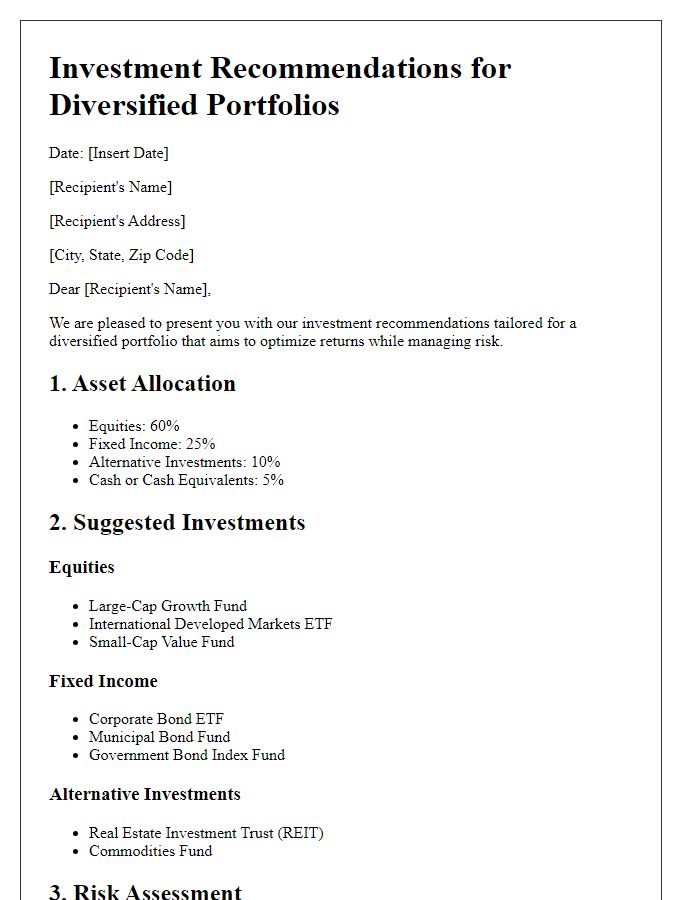
Letter template of investment strategy outline for stakeholder presentations
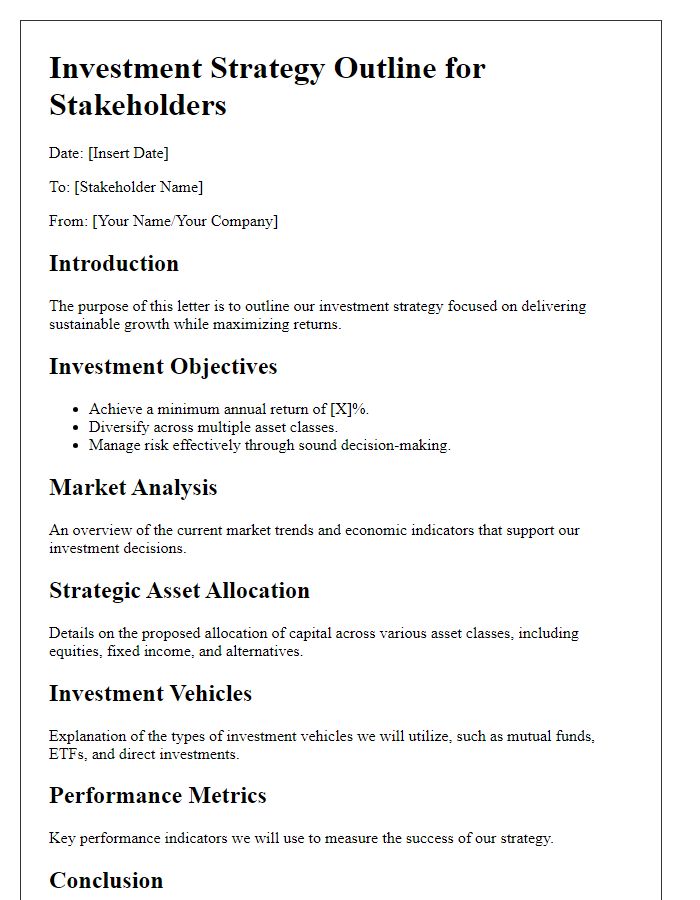

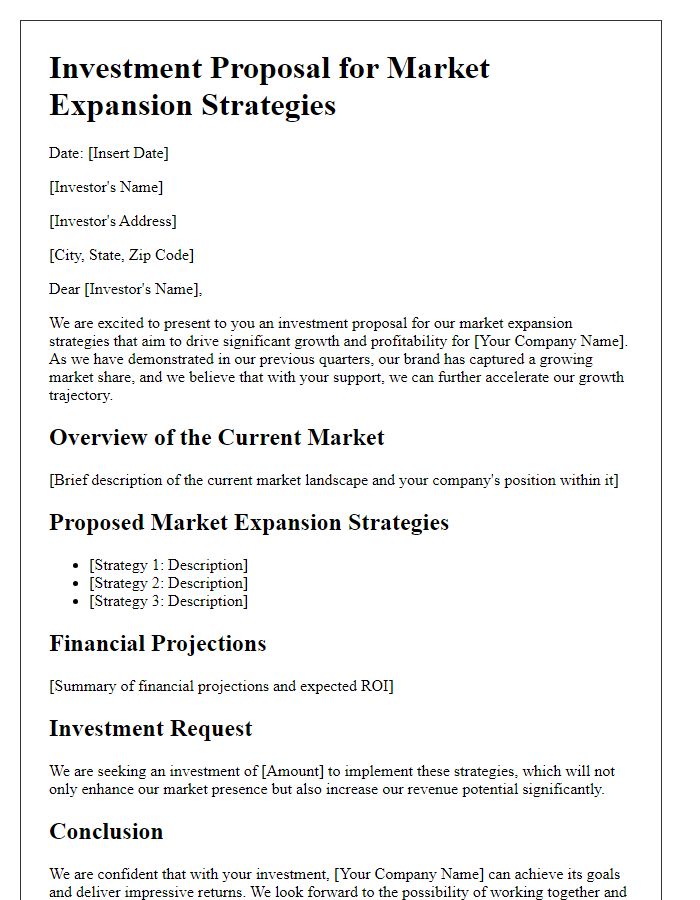
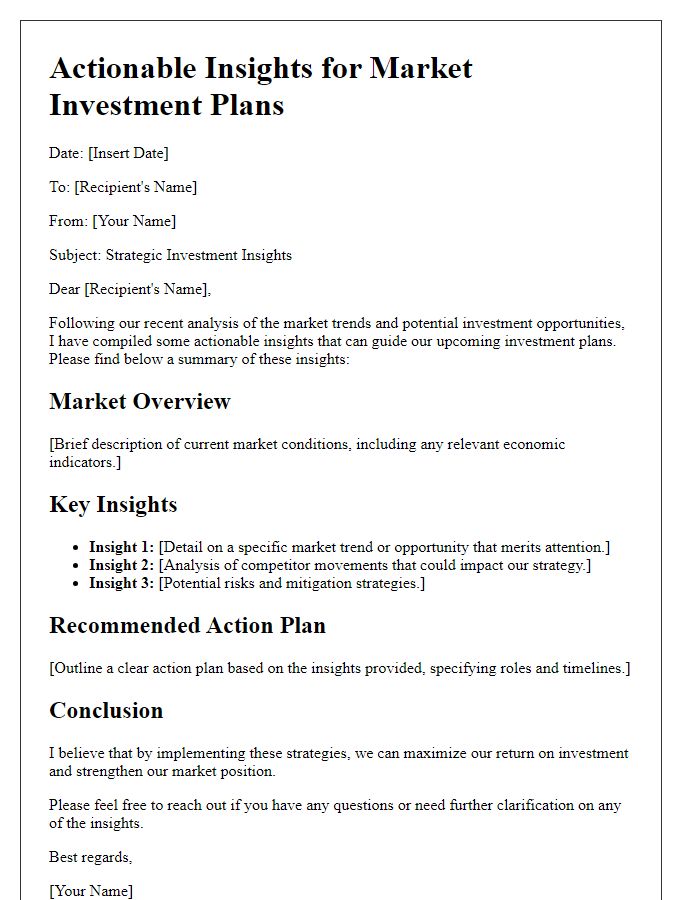
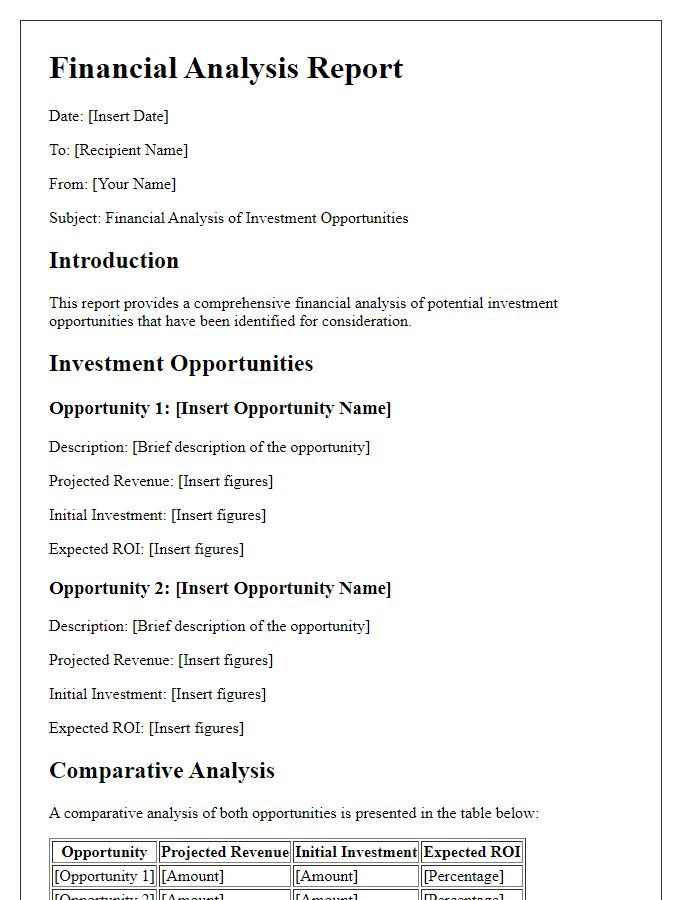
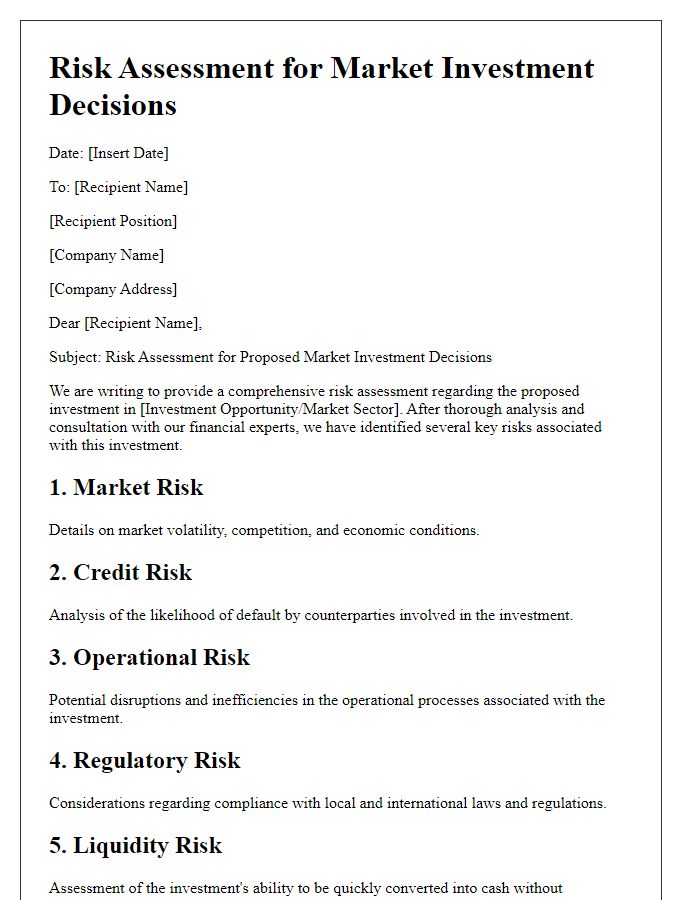
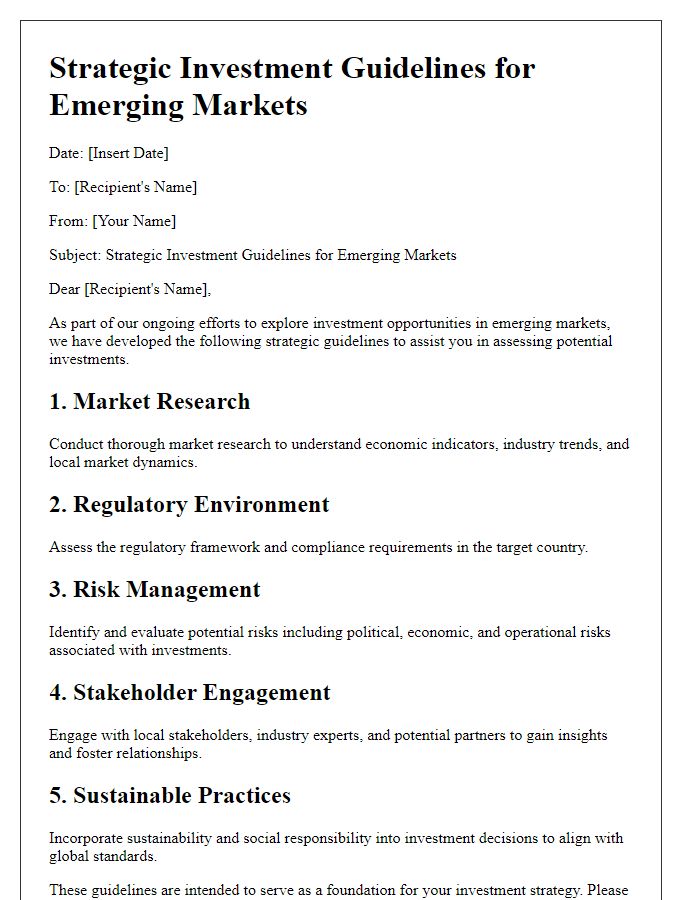
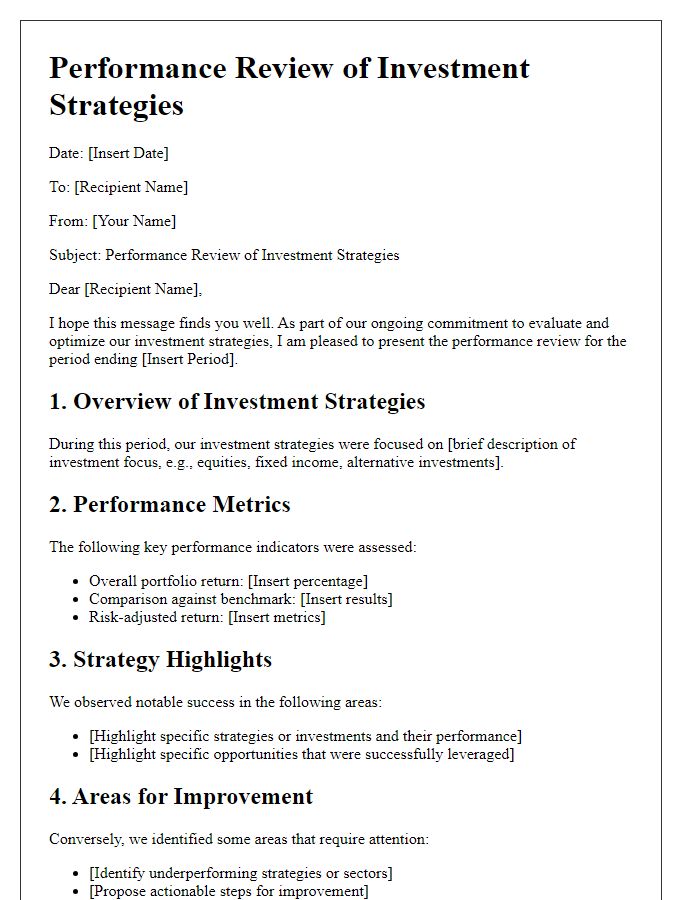
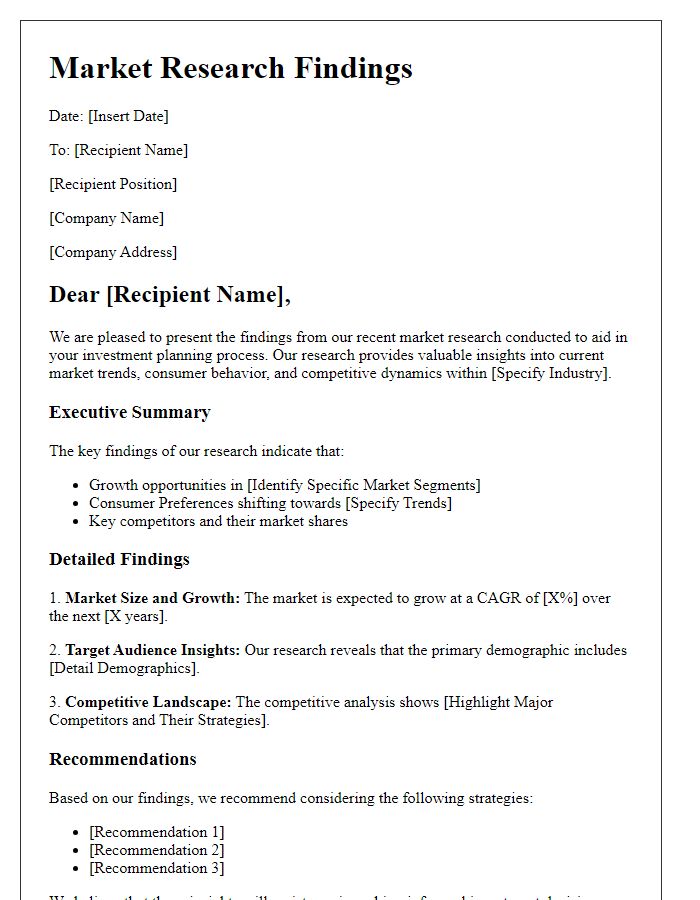
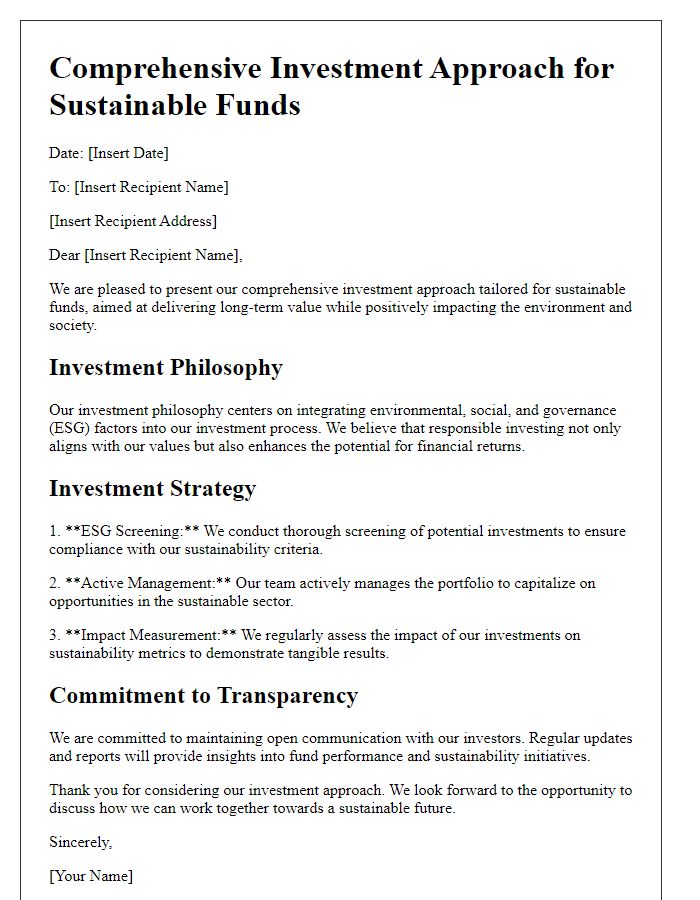


Comments